PROVICTIMS_NEWSLETTER #2
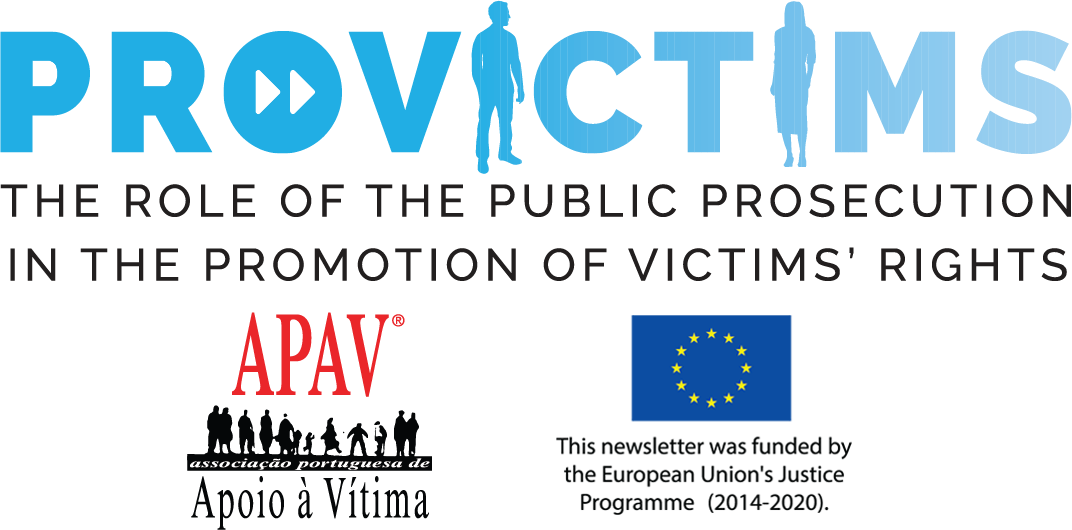
| Project PROVICTIMS: the role of the public prosecution in the promotion of victims’ rights is a project co-funded by the Justice Programme of the European Union. The project’s main objective is improving the capacity of public prosecution services in addressing and ensuring the enjoyment of victims’ rights. If you wish to know more about the project and the partnership, read PROVICTIMS’ Newsletter Issue #1. |
RECENT ACTIVITIES
Visit to Bilbao
Technical visit
The PROVICTIMS team visited Bilbao, the capital city of the Basque Country in Spain, on the 3rd and 4th of June 2019 and was received and hosted by Association Institute for Social Reintegration of Euskadi (IRSE-EBI), one of the partner organisations of PROVICTIMS.
The two-day visit to the city comprised three different activities which were co-organised by IRSE-EBI and the Portuguese Association for Victim Support (APAV): the second partners meeting, a technical visit and a workshop.
The first activity to take place was the technical visit. During the morning of June the 3rd, the project team guided by Antonio Perdices, IRSE-EBI’s representative, had a unique opportunity to visit Bilbao’s Court of Justice which is composed by two adjacent buildings where different criminal and civil justice facilities are based.
While visiting different rooms of the Court of Justice, the PROVICTIMS had the chance to speak to different professionals of the criminal justice system and understand different procedures. More precisely, the team visited a criminal court room having had the chance to attend a sentence reading session and speak to a judge, a public prosecutor and a professional responsible for the judicial secretariat who, in the Spanish criminal justice system, is the person responsible for liaising with victims and ensuring their rights are being respected as well as guaranteeing they are informed about the case.
Moreover, the project team visited the Basque Bar Association room within the Court of Justice, the Court’s Library, the police station which assists judges and prosecutors, the Public Prosecution room and others across the building.
When coming into the adjacent building where the High Court of the Basque Country is based, the participants visited the court’s psychosocial service. Here, they had the opportunity to meet with the head of the service which explained its functioning and showed a room where child victims and witnesses are questioned.
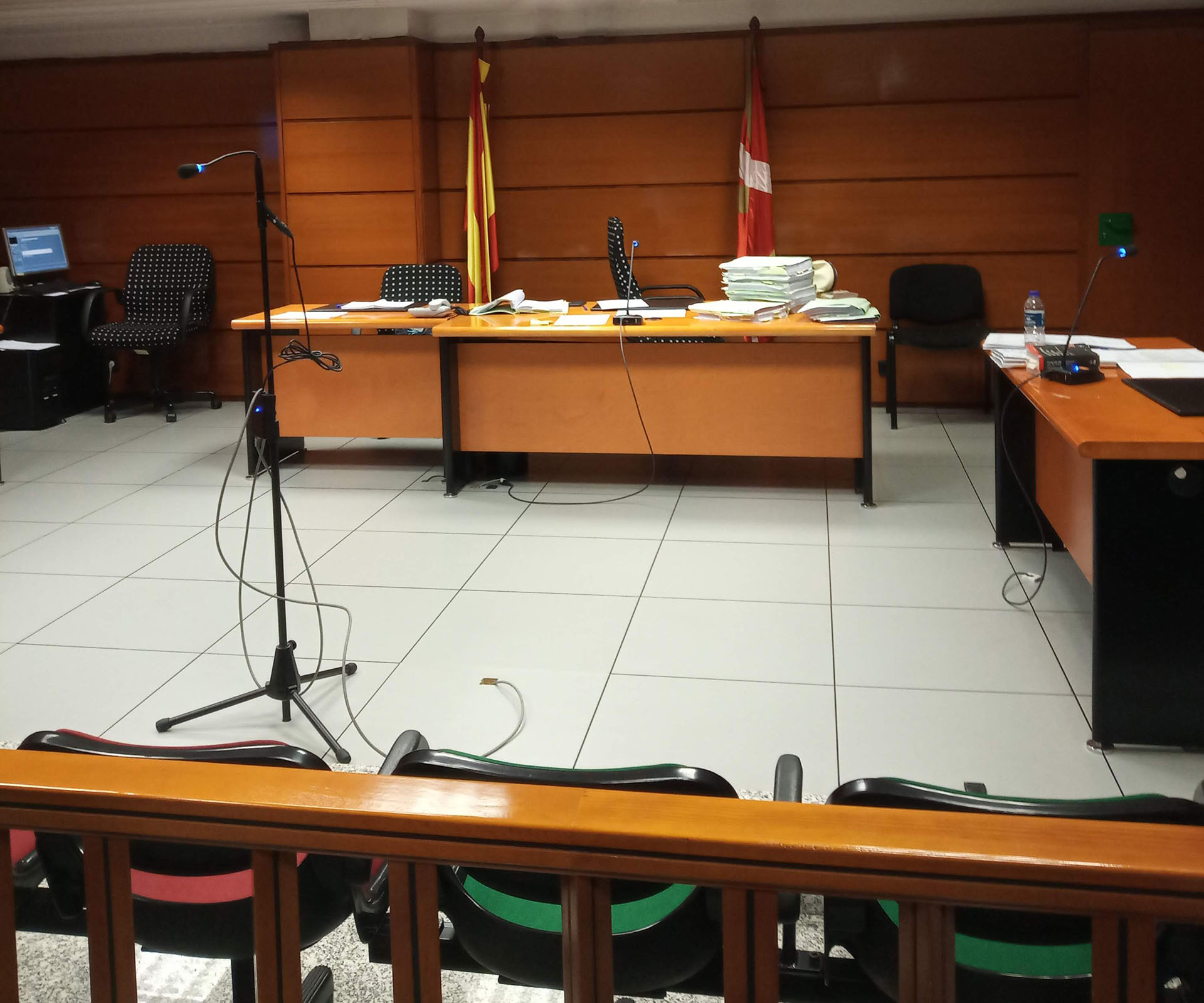 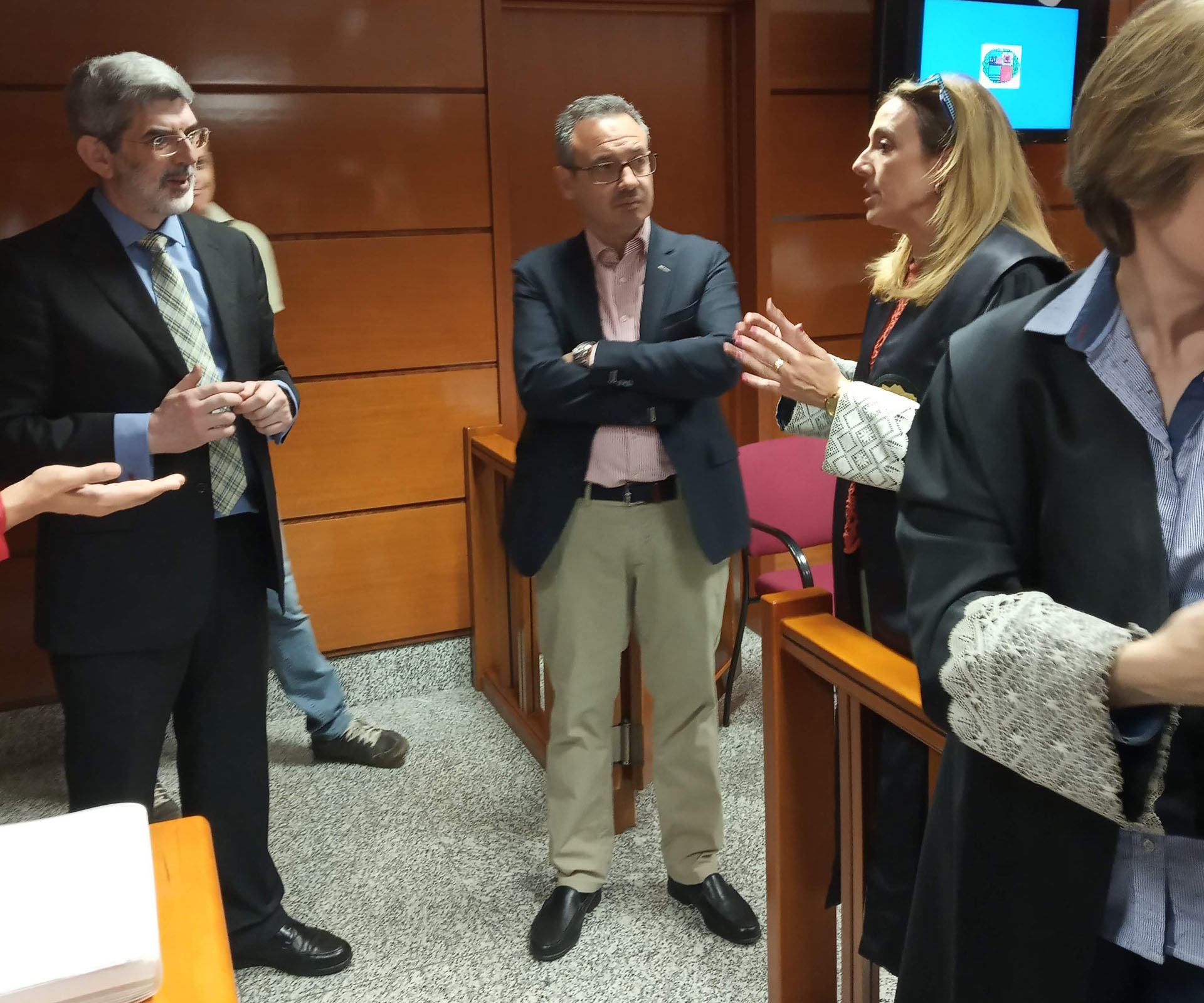 |
The psychosocial service of the court, which is comprised by legal experts, psychologists and people with education on social service, is responsible for conducting psychological assessment of victims, witnesses and defendants and provide psychological expert evidence for civil courts, criminal courts and the regulation for parental responsibilities in family courts. The service is also responsible for conducting the questioning of child victims and witnesses which are carried out in the specific room mentioned before.
Finally, the participants visited the criminal sentence management services where they also had the opportunity to meet the head of the service, understand what the service does and debate the differences in the execution of criminal sentences in Spain, Portugal and Croatia. The topic of restorative justice in the prison context was also discussed.
All members of the team considered the visit very interesting and fruitful because it allowed us not only to learn more about the Spanish criminal justice system but also to better understand how it functions in practice, how its professionals work on a daily basis and in what ways are victims’ rights taken into account.
  |
We would like to thank this opportunity to congratulate our partner Anotnio Perdices who so kindly was our guide and made this visit possible. We would also like to thank, of course, to all professionals who so gently received and spoke to us.
Second partners meeting
After the technical visit which occupied the team’s entire morning, the second partners meeting followed. This meeting was an opportunity for the representatives of the partner organisations to discuss the state of implementation of the project and analyse the questionnaire proposal presented by Centre of Investigation for Penal Law and Criminal Sciences of the Faculty of Law of the University of Lisbon. Please find more information on the PROVICTIMS questionnaire bellow.
Workshop: the role of public prosecutors in the promotion of victims’ rights
On the second day of the visit to Bilbao, a workshop co-organised by IRSE-EBI and APAV took place on a conference room of Bilbao’s Court of Justice. The workshop focused on the Spanish legal system and on the role which pertains to Public Prosecutors in the promotion of victims’ rights within this same legal framework.
Several speakers, including the Justice Director of the Basque Government, a Prosecutor responsible of Bilbao’s specialised Public Prosecutor Office for especially vulnerable victims, and the head of IRSE-EBI’s Restorative Justice Service presented and discussed with the audience topics such as the role of Public Prosecutors in the Spanish legal and practical context, the restorative justice mechanisms in the Basque Country,the role of the Public Prosecutors in, and the importance of Public Prosecutors’ training. The workshop also represented an opportunity for IRSE-EBI’s team, represented by Juan Luis Fuentes, Jose Ignacio Martínez, Antonio Perdices and Lourdes Lorente, to present the Institute’s services and its past, current and future work in the promotion of social integration of past offenders, the improvement of restorative justice practices and, of course, of in the advancement of victims’ rights within the criminal justice system.
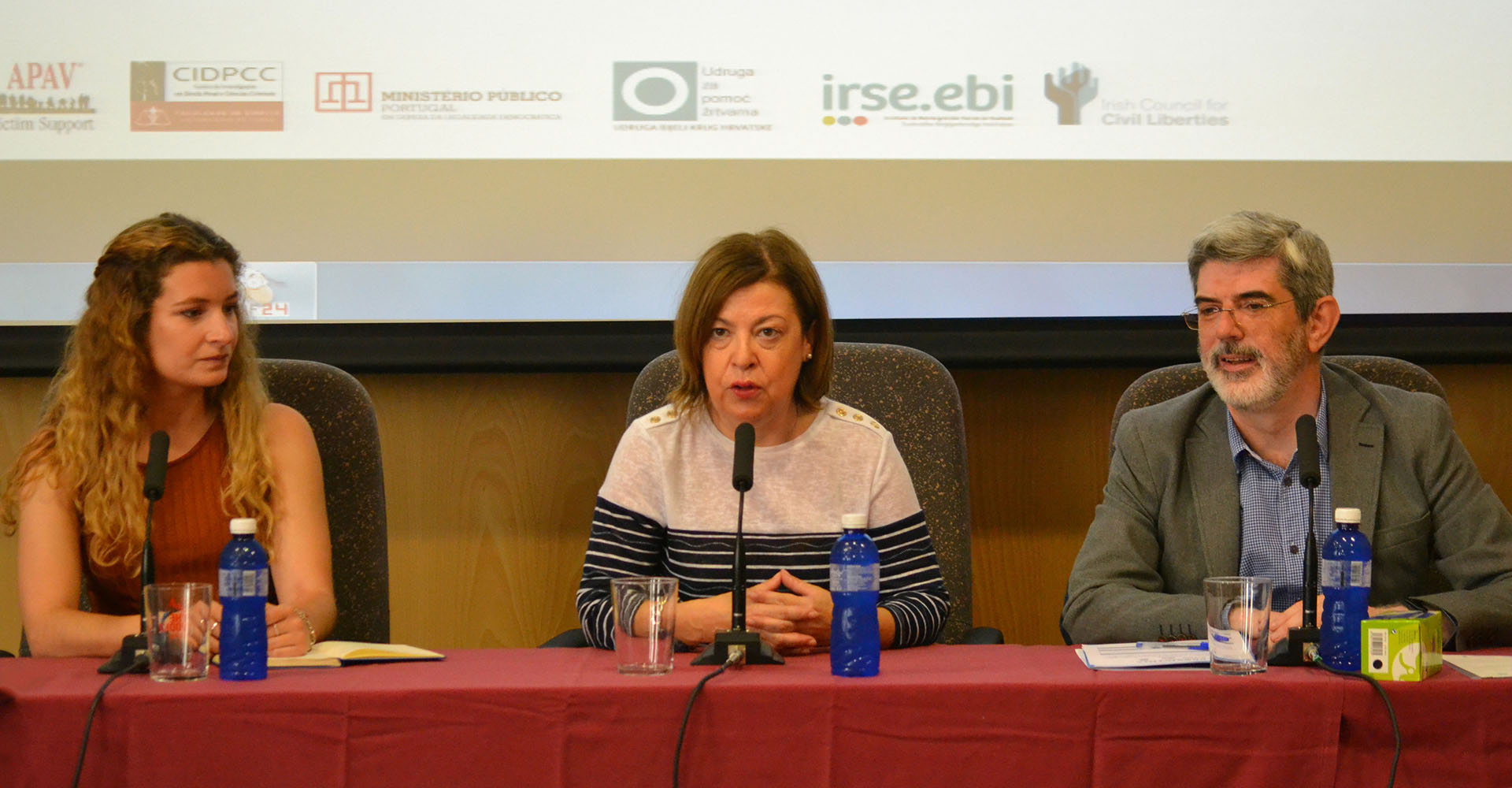 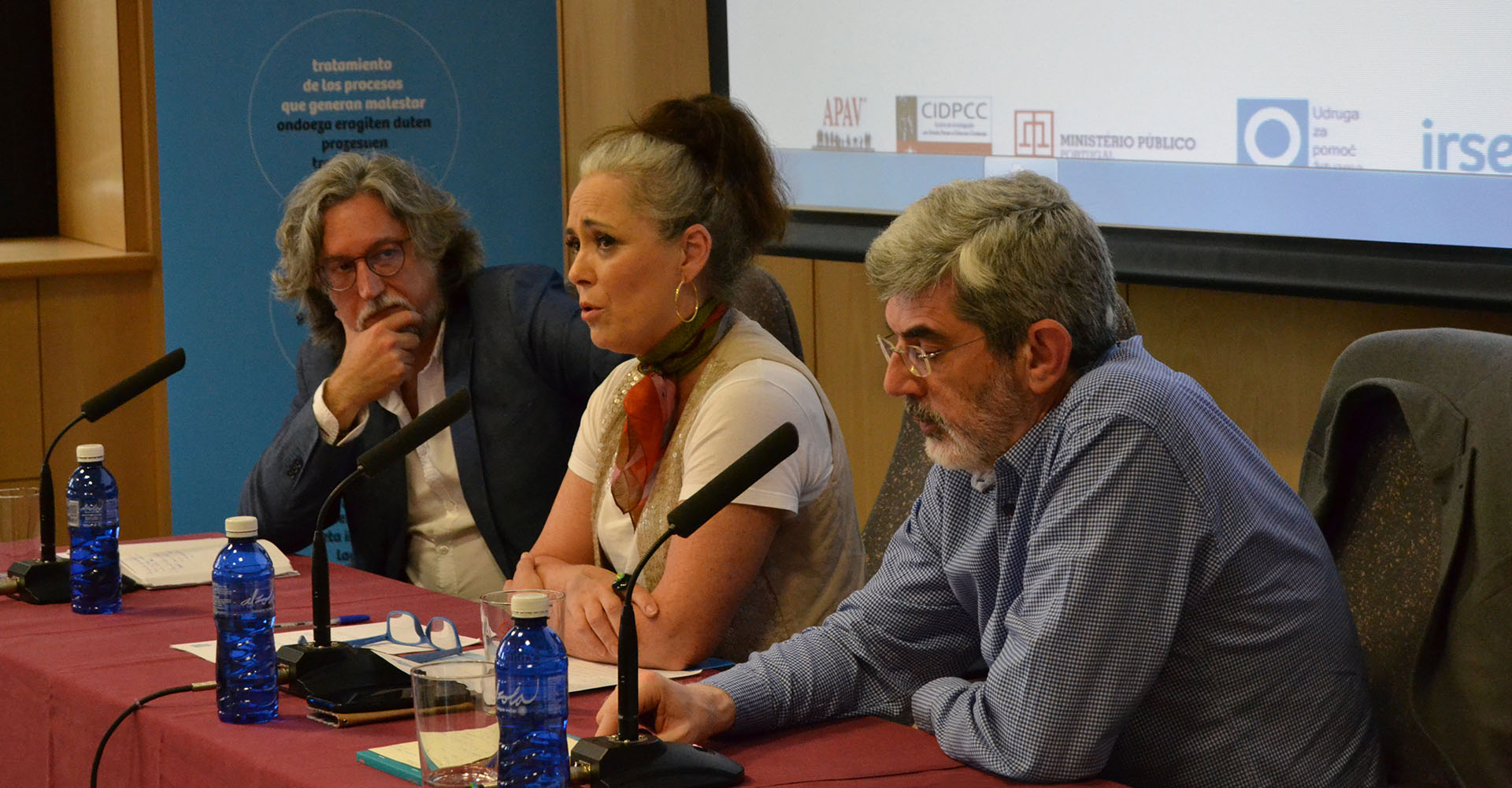 |
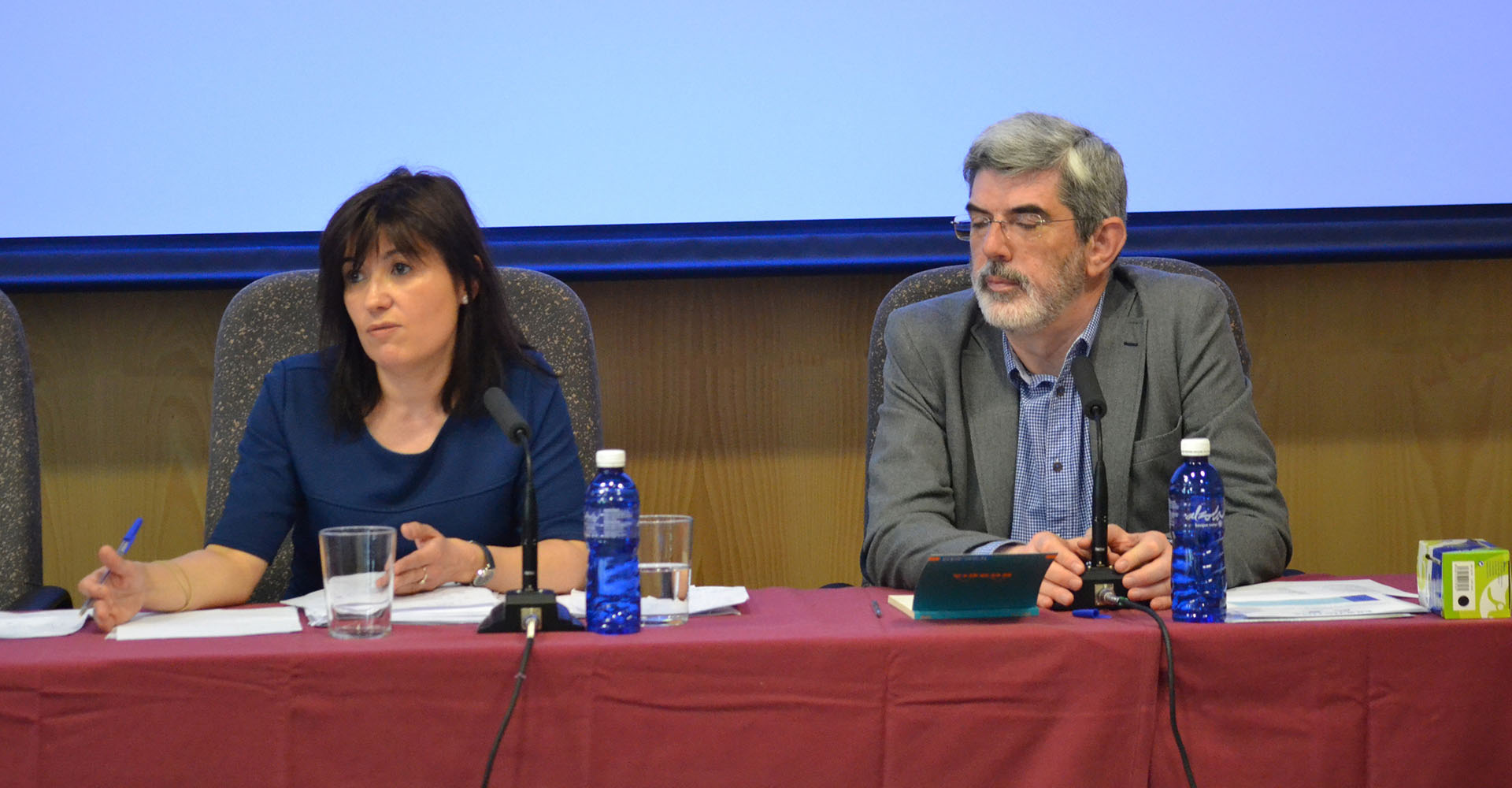 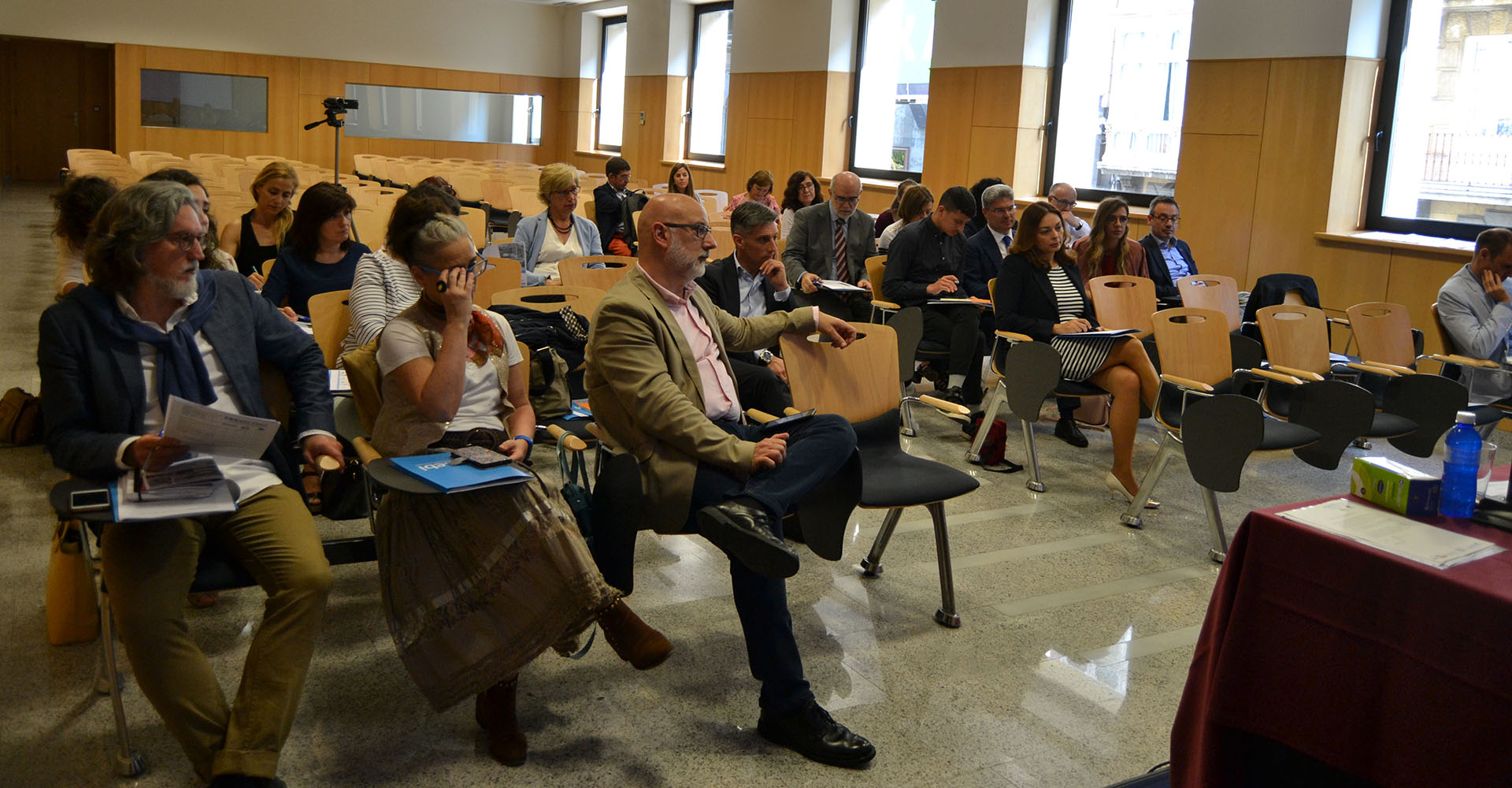 |
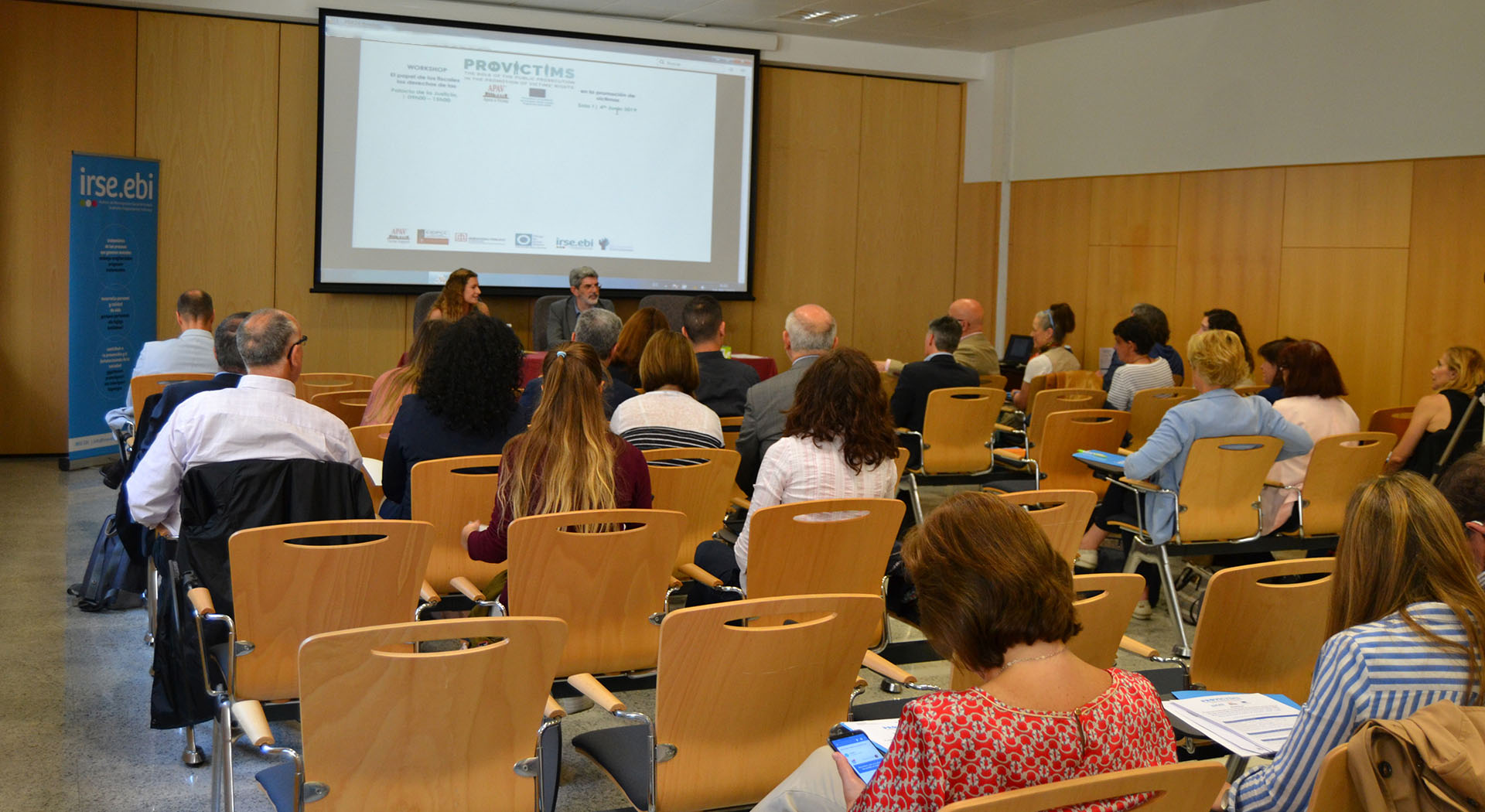 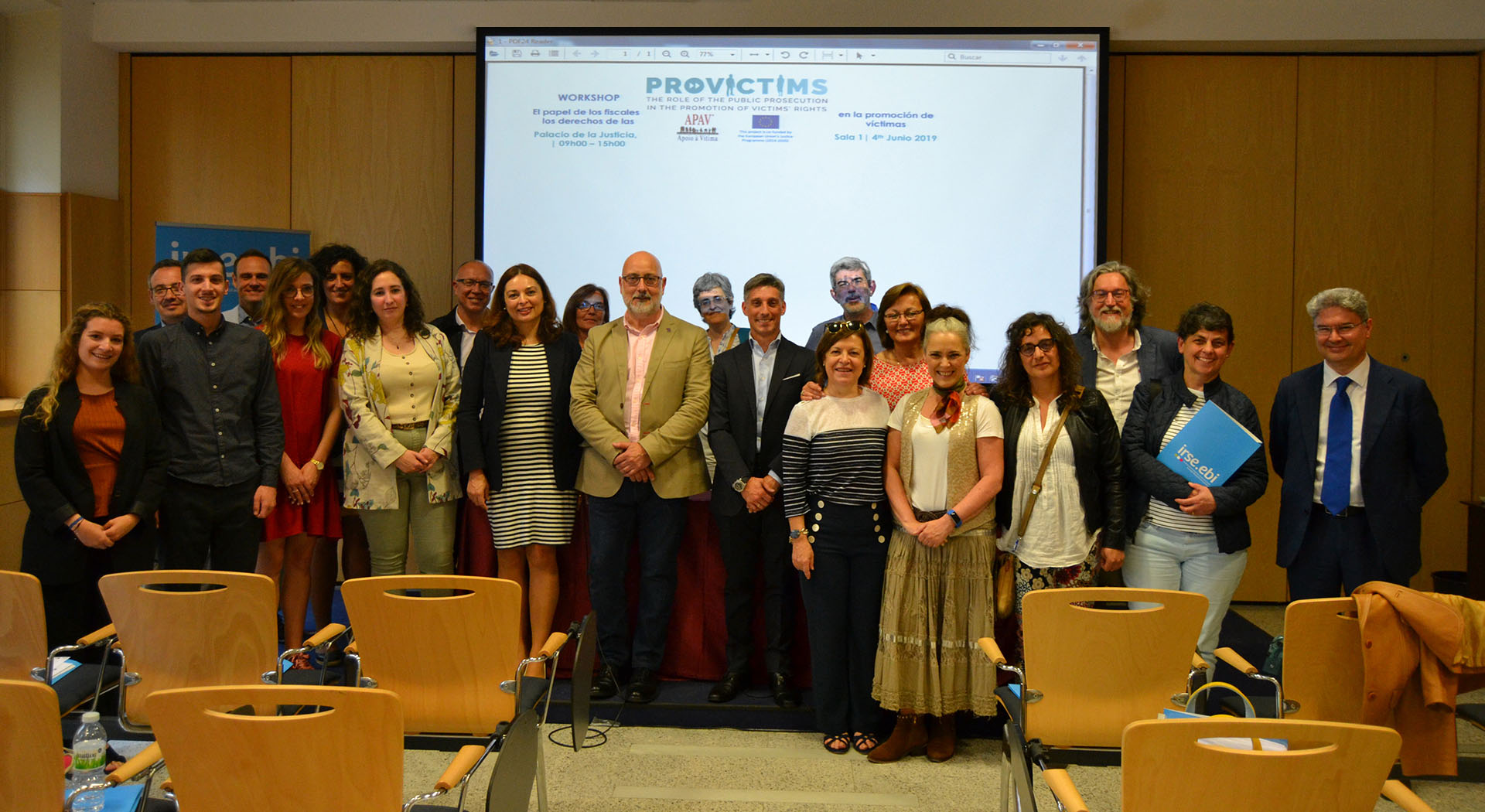 |
The development of a questionnaire is one of the most important activities of project PROVICTIMS. The questionnaire is part of the project’s Workstream 2: research on the role of the public prosecution in the promotion of victims’ rights and it aims specifically at assessing the role of Public Prosecutors in different judicial legal systems in Europe in order to understand how victims’ rights are (or could be) ensured by Public Prosecution Services.
Following some preliminary desk research, the first step of the development of the questionnaire was the creation of an information recall which was sent to Victim Support Organisations (VSOs) and Public Prosecution Services in Austria, France, Germany, Hungary, Italy, The Netherlands, and Sweden. The information recall consisted of a serious of open questions which aimed to establish baseline knowledge on different legal systems and on each of these systems’ legal treatment of some of the victims’ rights established in the Victims’ Directive (Directive 2012/29/EU of the European Parliament and of the Council of 25 October 2012, establishing minimum standards on the rights, support and protection of victims of crime, and replacing Council Framework Decision 2001/220/JHA).
Once the answers to the information recall were collected the team from the Centre of Investigation for Penal Law and Criminal Sciences of the Faculty of Law of the University of Lisbon started to prepare the questionnaire.
The PROVICTIMS questionnaire is a thorough research tool which will be disseminated in several EU countries, more precisely among VSOs and Public Prosecutors. The questionnaire is comprised by close-ended question on the (i) the overall legal framework, (ii) victims’ right to information (article 4 and 6 of the Victims’ Directive), (iii) the rights of victims when making a complaint (article 5), (iv) the right to support services (articles 8 and 9), (v) the right to safeguards in the context of restorative justice services (article 12), and (vi) the right to protection (article 18).
Once translated into different EU languages, the questionnaire will be disseminated. The answers provided by experts from VSOs and Public Prosecution Services will certainly build upon the information and knowledge already gathered by the project team and enable the development of a report which will aim at mapping the legal and practical role of the prosecution services in the promotion of victims’ rights as well as the drafting of practical recommendations on how Public Prosecutors can better play their role as guarantors of victims’ rights.
If you work in a Victim Support Organisation or as a Public Prosecutor, your answer to the questionnaire would help us gain invaluable insight regarding the role of Public Prosecutors in your country. Therefore, if you wish to answer to the PROVICTIMS Questionnaire, please send an email to
UPCOMING ACTIVITIES
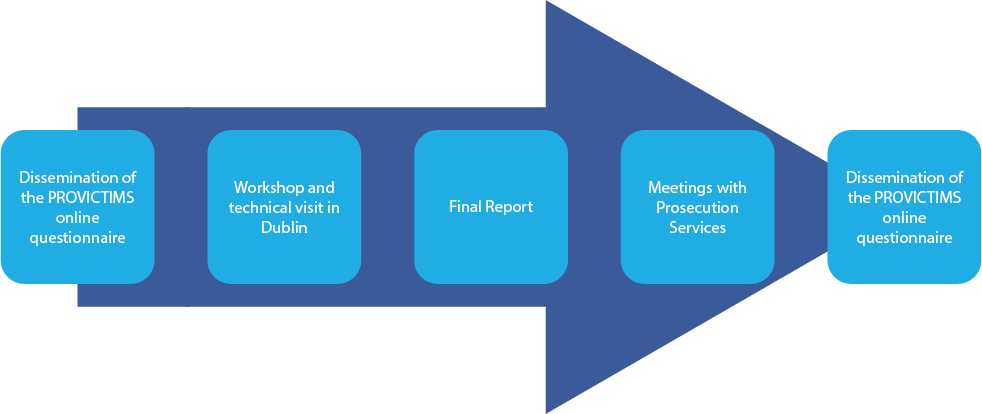
Thank you for reading Project PROVICTIMS Newsletter!
If you wish to know more about the Project click on the buttons above or contact the Project Team via email to
The content of this page represents the views of the author only and is its sole responsibility. The European Commission does not accept any responsibility for use that may be made of the information it contains.